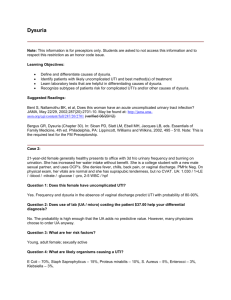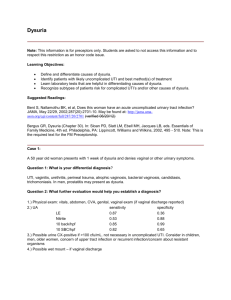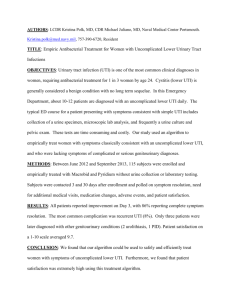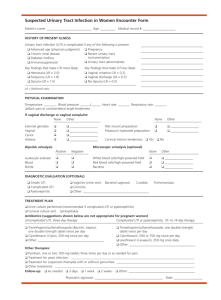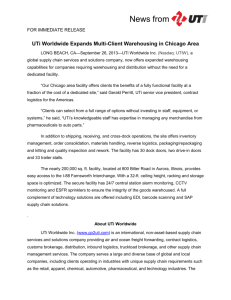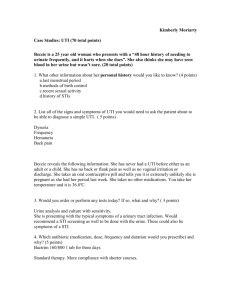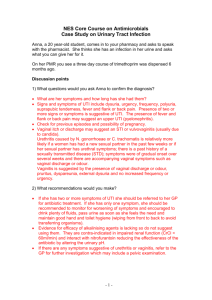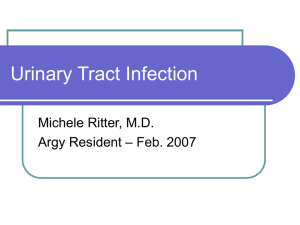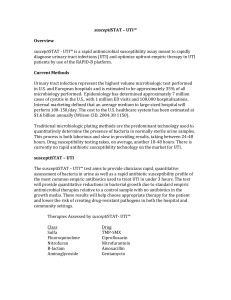Case 3
advertisement
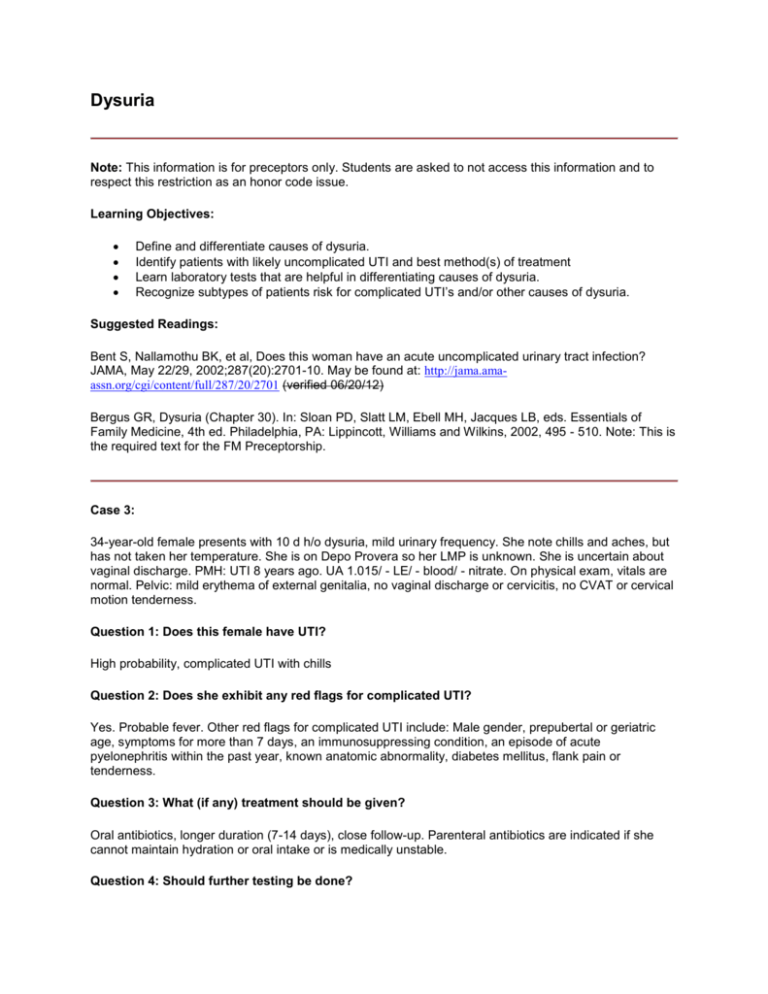
Dysuria Note: This information is for preceptors only. Students are asked to not access this information and to respect this restriction as an honor code issue. Learning Objectives: Define and differentiate causes of dysuria. Identify patients with likely uncomplicated UTI and best method(s) of treatment Learn laboratory tests that are helpful in differentiating causes of dysuria. Recognize subtypes of patients risk for complicated UTI’s and/or other causes of dysuria. Suggested Readings: Bent S, Nallamothu BK, et al, Does this woman have an acute uncomplicated urinary tract infection? JAMA, May 22/29, 2002;287(20):2701-10. May be found at: http://jama.amaassn.org/cgi/content/full/287/20/2701 (verified 06/20/12) Bergus GR, Dysuria (Chapter 30). In: Sloan PD, Slatt LM, Ebell MH, Jacques LB, eds. Essentials of Family Medicine, 4th ed. Philadelphia, PA: Lippincott, Williams and Wilkins, 2002, 495 - 510. Note: This is the required text for the FM Preceptorship. Case 3: 34-year-old female presents with 10 d h/o dysuria, mild urinary frequency. She note chills and aches, but has not taken her temperature. She is on Depo Provera so her LMP is unknown. She is uncertain about vaginal discharge. PMH: UTI 8 years ago. UA 1.015/ - LE/ - blood/ - nitrate. On physical exam, vitals are normal. Pelvic: mild erythema of external genitalia, no vaginal discharge or cervicitis, no CVAT or cervical motion tenderness. Question 1: Does this female have UTI? High probability, complicated UTI with chills Question 2: Does she exhibit any red flags for complicated UTI? Yes. Probable fever. Other red flags for complicated UTI include: Male gender, prepubertal or geriatric age, symptoms for more than 7 days, an immunosuppressing condition, an episode of acute pyelonephritis within the past year, known anatomic abnormality, diabetes mellitus, flank pain or tenderness. Question 3: What (if any) treatment should be given? Oral antibiotics, longer duration (7-14 days), close follow-up. Parenteral antibiotics are indicated if she cannot maintain hydration or oral intake or is medically unstable. Question 4: Should further testing be done? Urine culture. Consider pregnancy test. Consider wet prep & GC/Chlamydia testing.
